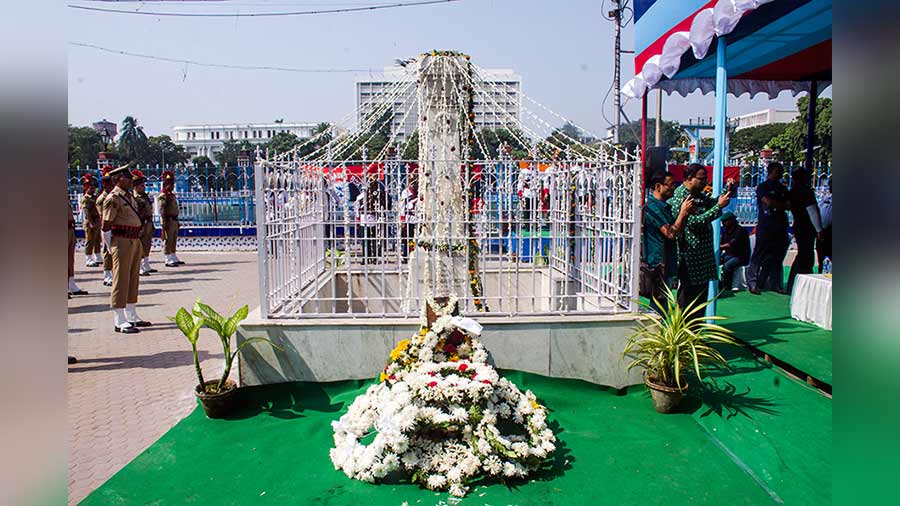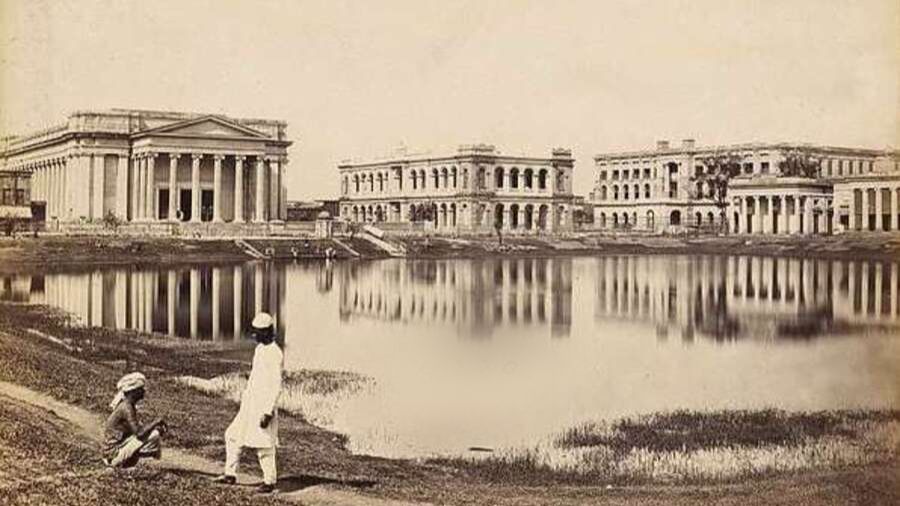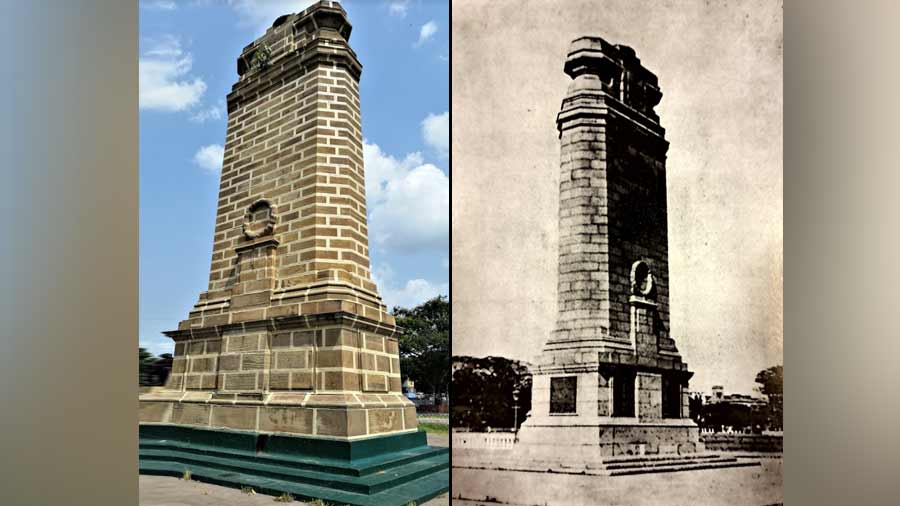At 11am on the second Sunday of November, the bugles blew, marking the 104th anniversary of the end of World War I. Kolkata was all set to remember their fallen soldiers at the Bengali War Memorial in College Square. Remembrance Sunday was observed with Shashi Panja, the cabinet minister of industries, commerce & enterprises and department of women & child development, as the chief guest. She was accompanied by Sudip Bandyopadhyay, member of Parliament.
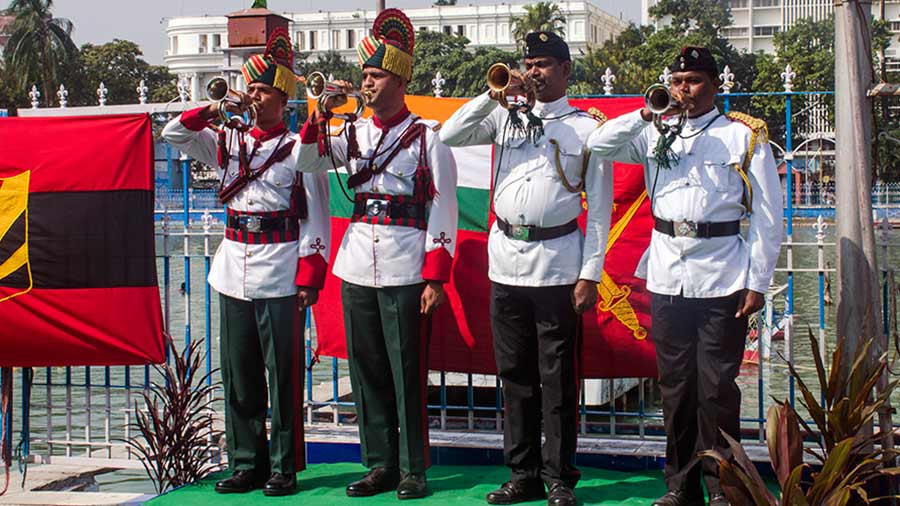
Bihar regiment buglers at the Bengali War Memorial on Remembrance Day
The event in Kolkata was hosted by the soldiers and the band from the Bihar Regiment. Apart from a few dignitaries, the wreath-laying ceremony also had representatives from the army, air-force, police, local council, Indian Chamber of Commerce, College Square Puja Committee, College Square Swimming Club and a few others.
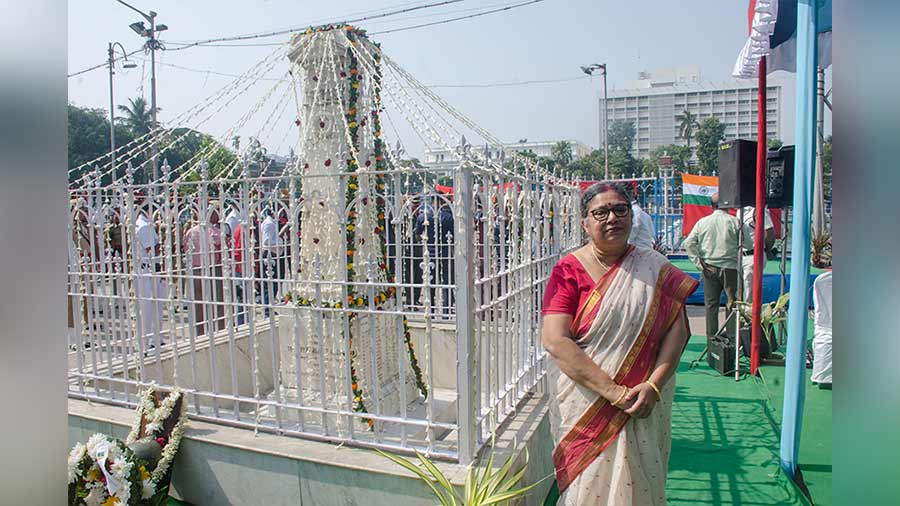
Atashi Sanyal Kanjilal, grand-daughter of Amulya Charan Sanyal, a member of the 49th Bengali Regiment
The list also included Atashi Sanyal Kanjilal, grand-daughter of Amulya Charan Sanyal, a member of the 49th Bengali Regiment. Sanyal returned home safely with tales of horrors of the war. Ms Kanjilal, who was born after her grandfather’s death, heard of the war tales from her grandmother. She narrated the stories of extreme food shortage the regiment faced and even today the Sanyal family strictly avoids food wastage during their daily meals.
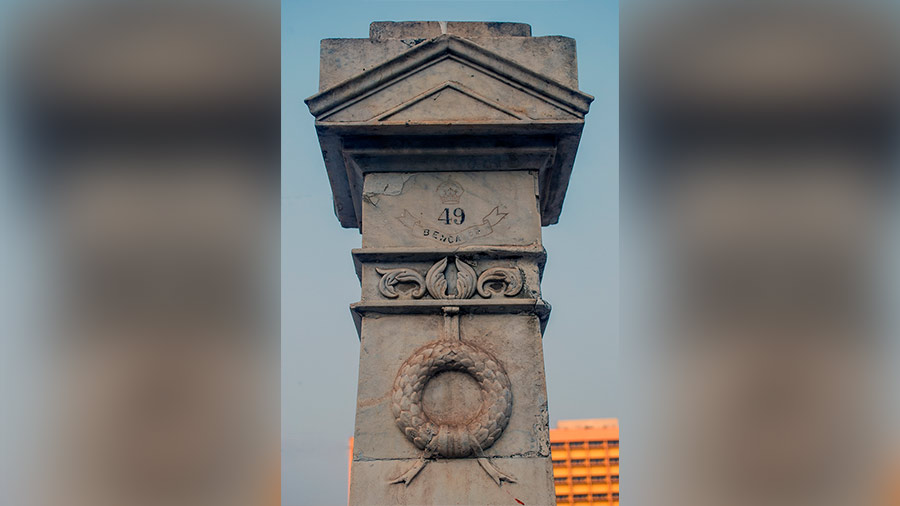
The top portion of the memorial
Over a million Indian soldiers served the British Army during the Great War of 1914-18. Among them, about 62,000 died and another 67,000 were wounded at different war theatres across the world. These included a group of Bengali soldiers, who fought in the war theatres of Mesopotamia. About 56 of them died and in 1924, a memorial was erected in their memory eastern gate of the College Square.
The World War I ended on the 11th hour of the 11th day of the 11th month and ever since the day has been known as Armistice Day. Post World War II the Armistice Day celebrations were moved to the second Sunday of November and the day came to be known as Remembrance Sunday. Remembrance Day is celebrated all over the world and memorial services are held every year at the Glorious Dead Cenotaph at the Kolkata Maidan.
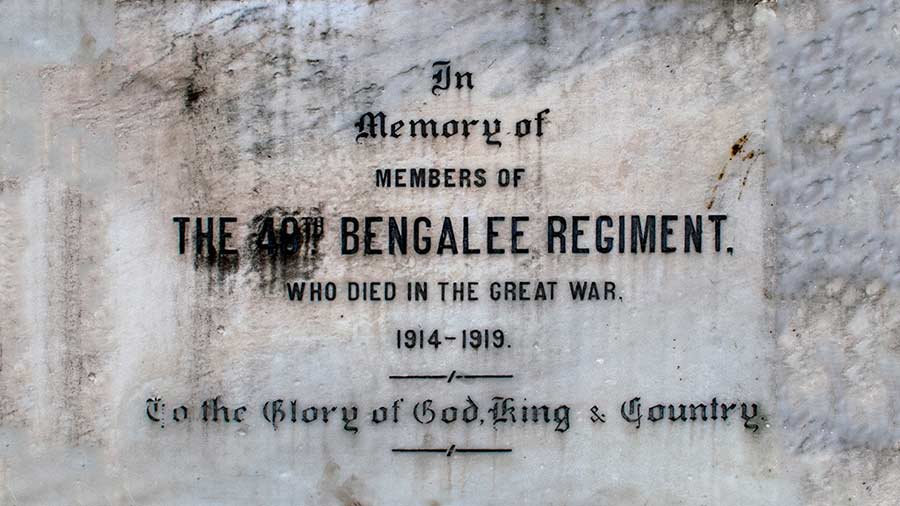
The front plaque at the base
Sadly, there are no regular services at the Bengali War Memorial. In 2018, on the 100th anniversary, a service was held, but with the Covid outbreak things became irregular again. However, in 2022, services were again held to remember the fallen Bengali soldiers.
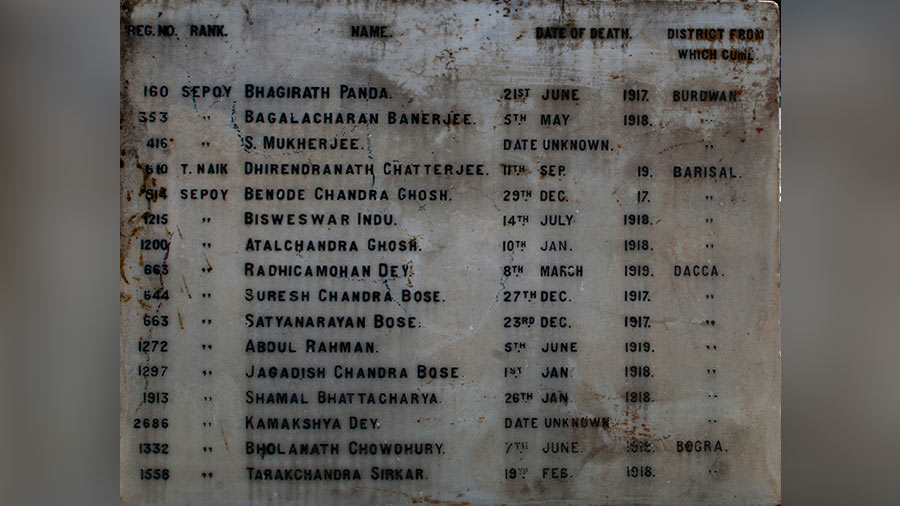
One of the three side plaques at the base with the names of fallen soldiers
Officially known as the 49th Bengali Regiment, it originally started as the Bengali Double Company on June 26, 1917, with 228 soldiers. After completion of training in Karachi, they reached the battlefields of Mesopotamia (now Iraq) in September 1917. The regiment was probably never involved in direct conflict and worked mainly as support staff. Of the 56 deaths, most occurred due to disease and accidents. The surviving soldiers of the regiment returned to Kolkata on August 30, 1920, and was dissolved soon after.
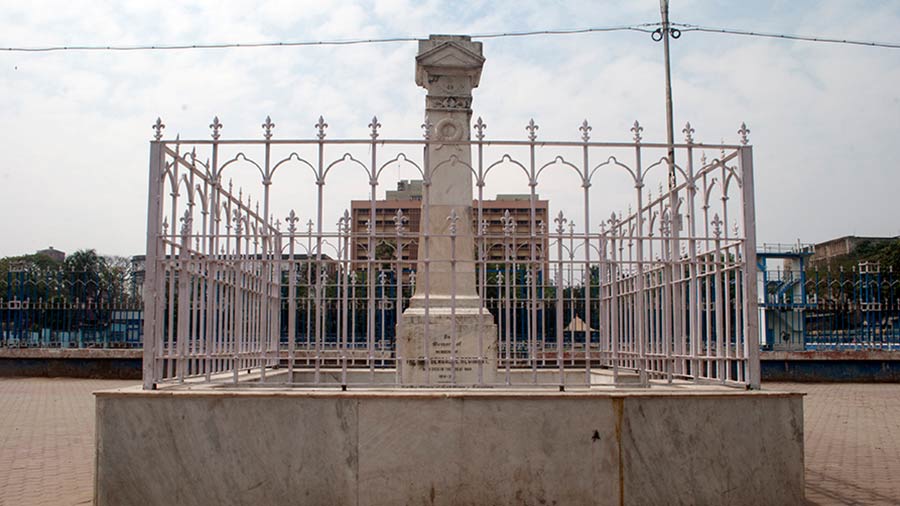
The memorial on a normal day
Today, a memorial stands in their memory and was designed by William Ingram Keir. The pillar-shaped memorial is marked with an image of the British crown on the top with the inscription Bengalis. The front panel of the base carries the following inscriptions, “In memory of members of the 49th Bengali Regiment who died in the great war 1914 – 19. To the glory of God, King and Country.” The other three sides of the memorial base contain the names of the 56 fallen soldiers. It also contains the following information of Reg. No., Rank, Date of Death, District from which come.
